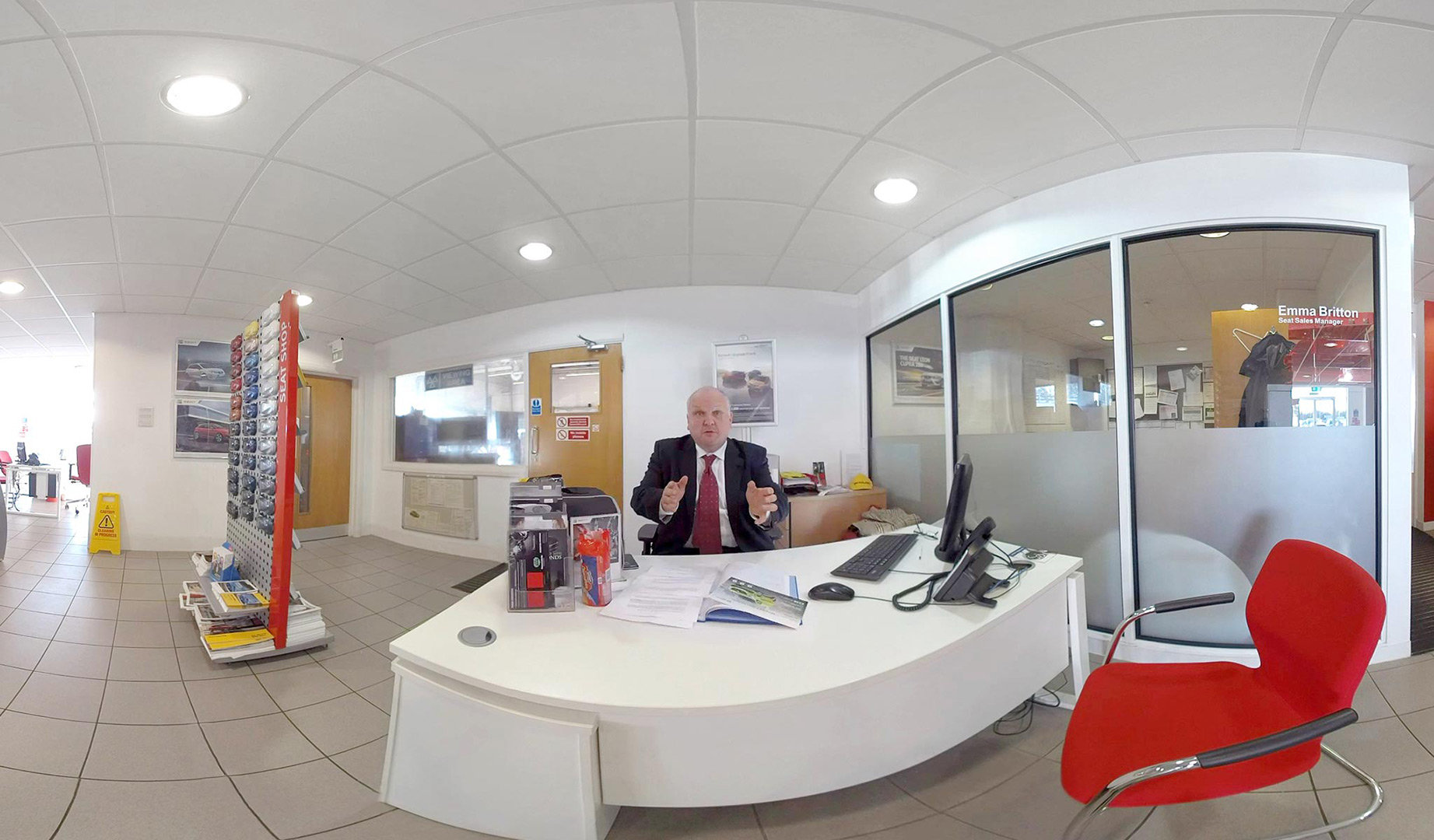Car showroom VR customer decisions
Renault, a leading automotive manufacturer with annual sales of 3.8 million cars in 134 countries, turned to VR customer decisions to understand how people reacted in different retail situations. They needed to know what customers liked and disliked about interacting with sales staff however research in a car dealership was perceived to be time-consuming and costly. The alternative, interviews conducted out of context, wouldn’t capture meaningful responses and, given cars are the second largest purchase consideration, Renault needed accurate insight on the buying process and its impact on sales.
Accessible and realistic retail experience for a large number of respondents
Research protocol that would generate appropriate and accurate responses from respondents
Prove VR as a viable tool for integration into market research

Immersive VR solution
Along with research partners, Aviatrix, we created a two stage methodology so that more people could be tested in order to get better insights on the purchase experience. Firstly, to interview people about the car buying experience to establish what people reported they did and did not like about the experience. Two scripts were created based on what people said about talking to car salespeople and we produced two VR customer decisions with an actor in a car showroom. Secondly, respondents were recruited who had recent experience of car buying or were in the market for a new car. They used a VR headset to experience a ‘good’ salesman and a ‘bad’ salesman which was followed by an interview.
Stimulus based on interviews with respondents in relevant customer segments
360 video simulations created by scripting and directing realistic sales situations
VR respondent experience followed by in-depth interviews
Result
VR customer decisions identified people’s real motivations behind what they did and did not like about talking to car sales people with the VR experiences of the ‘good’ and the ‘bad’ sales person shown in different orders. Interestingly, when the respondents who saw the (previously reported to be) ‘good’ sales person in VR, they didn’t respond to the same positive attributes in the same way. They were critical of both ‘good’ and ‘bad’ versions and empathised with the sales person as they acknowledged the human experience of meeting a person who was trying to earn a living. Overall, this project showed that VR market research produced dramatically different outcomes to using self-report alone. It also showed that VR can reveal more information than standalone interviews and hence how VR can be used to great effect in producing more ‘real world’ responses akin to ethnography in a more cost effective and efficient way than observing behaviour of people in actual retail environments.
Respondents reported feeling more empathy with the sales person
Responses to ‘good’ and ‘bad’ versions differed significantly based on whether or not respondents experienced VR
VR showed it can be used to get similar responses to ethnography
Please note that in-depth results are subject to Non Disclosure Agreement and therefore not available for publication.
